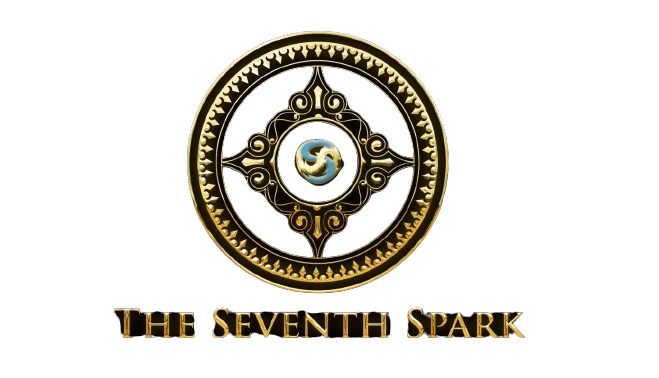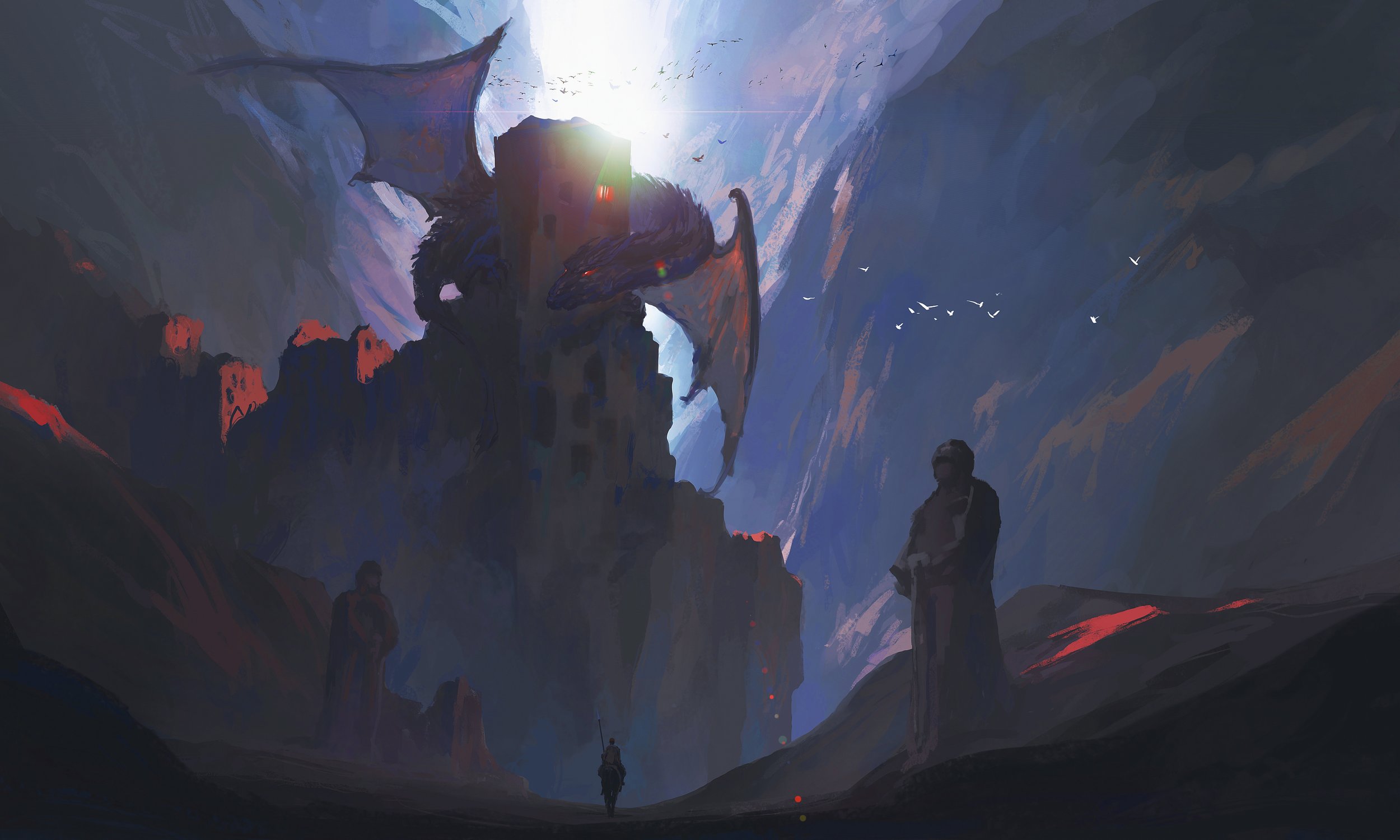What Is Epic Fantasy Series?
Epic fantasy, also known as high fantasy, is a subgenre that whisks you away to entirely new worlds brimming with magic, mythical creatures, and grand adventures. These stories typically involve large-scale conflicts, heroic quests to save the world from evil, and complex narratives that often span multiple books. To fully flesh out these vast worlds, epic fantasies delve into rich histories, unique cultures, and intricate magic systems, giving readers a sense of depth and immersion that keeps them turning the pages.
6 Characteristics of High Fantasy
High-fantasy narratives boast an array of fantastical features, characterized by:
Otherworldly Settings: The hallmark of high fantasy lies in its departure from Earth, manifesting in what's termed a "secondary world." This realm teems with distinct fauna, flora, races, cultures, urban landscapes, societal frameworks, belief systems, and more, setting it apart from our familiar terrestrial sphere.
Epic Global Conflicts: Unlike its counterparts such as sword and sorcery, high fantasy thrives on grand-scale conflicts that imperil the entire world. These narratives often hinge on the classic struggle between good and evil, sharply delineating heroes from villains amidst high-stakes showdowns.
Protagonists of Destiny: While not obligatory, high-fantasy works typically feature protagonists thrust into the role of saviors, tasked with thwarting malevolent forces and salvaging civilization. Frequently, these heroes undergo rapid maturation or embark on arduous quests, traversing the "hero's journey" to acquire the wisdom and prowess requisite for their pivotal confrontations.
Enigmatic Beasts: The tapestry of high fantasy is adorned with an eclectic array of fantastical creatures—dragons, unicorns, vampires, and mythical beings from the annals of folklore roam freely within its narratives, enriching the tapestry of the fantastical realm.
Anachronistic Technologies: Set against backdrops divergent from contemporary Earth, high-fantasy worlds often eschew modern technology in favor of historical weaponry such as swords, knives, and primal combat techniques, imbuing the narratives with an aura of antiquity.
Arcane Forces: Magic courses through the veins of many high-fantasy sagas, serving as either a potent tool wielded by characters or a formidable force inexorably shaping the trajectory of the tale.
High Fantasy vs. Low Fantasy
Despite ongoing debate among literary critics regarding the disparities between high fantasy and low fantasy, the prevailing viewpoints primarily revolve around one key divergence: setting. High fantasy narratives unfold within realms detached from Earth, often termed secondary worlds, whereas low fantasy tales transpire either directly on Earth or within a world closely resembling it.
Benefits of reading epic fantasy series
Escapism: Epic fantasy series offer a chance to escape into richly detailed worlds filled with magic, adventure, and intrigue, providing a break from the mundane realities of everyday life.
Expanding Imagination: Immersing oneself in epic fantasy encourages imaginative thinking as readers explore fantastical realms, creatures, and cultures beyond the constraints of reality.
Emotional Engagement: Through complex characters and sweeping narratives, epic fantasy series evoke a range of emotions, from excitement and wonder to empathy and sorrow, fostering a deep emotional connection with the story.
Themes and Morals: Many epic fantasy series explore universal themes such as power, sacrifice, redemption, and the nature of good and evil, offering valuable insights and moral lessons in the guise of thrilling adventures.
Intellectual Stimulation: Epic fantasy often involves intricate plots, political intrigue, and elaborate world-building, challenging readers to follow multiple storylines and unravel mysteries, thereby stimulating cognitive skills and critical thinking.
Sense of Belonging: Engaging with epic fantasy communities, whether through discussions, fan art, or conventions, fosters a sense of belonging and camaraderie among fans who share a passion for these fictional worlds.
Inspiration and Creativity: Reading epic fantasy can inspire creativity and fuel the imagination, motivating readers to write their own stories, create art, or even pursue hobbies related to the fantasy genre.
Empowerment and Resilience: Many epic fantasy protagonists overcome seemingly insurmountable challenges, teaching readers resilience, determination, and the belief that even the most daunting obstacles can be overcome with courage and perseverance.
Catharsis and Entertainment: Above all, epic fantasy series provide a source of entertainment and catharsis, offering thrilling adventures, epic battles, and moments of triumph that leave readers exhilarated and eager for more.
Tips for writing epic fantasy
Read epic fantasy books
Every type of story has its own patterns or themes that are usual and expected in that kind of story, like the main features of epic fantasy mentioned earlier. By reading and understanding epic fantasy books, you can see what readers want. Once you understand their expectations, you can put your own special spin on it and surprise them.
Create your fantasy world
There's a ton to think about when you're making a whole fantasy world. Get to know your world really well before you start planning any plots. How do your characters live in this world? Is there a social structure? What kind of jobs or ways of getting around exist in this world?
These are all things that will change the story and characters you create. If you're new to writing epic fantasy, it might seem like a lot — you're making a whole universe from nothing! To make it easier, think about starting with the big stuff before getting into the details.
Start with the big picture of your world. Think about the planet it's on. What are the seasons like, and how long do they last? Then think about the different areas. Focus on the places where your story happens. Are there lots of mountains, or is it a desert? Is it close to any big bodies of water? The people who live near the sea will have different lives, jobs, and even food than those who live near the mountains.
Then think about the smaller details of your world. Are your characters humans or something else? Are there any magical creatures in this world that your characters meet often? How has the environment affected how they've changed over time? Think about how different groups might have different values based on where they live. For example, the way they talk might change depending on their social class.
Create a story guide
When you're making up your world, there's going to be tons of stuff to remember. You might do lots of research, use templates, or draw maps and pictures. Making a story guide will be super helpful to keep track of everything that's happened or needs to happen in your story.
This guide will also help you stick to the rules you've set for your world. For instance, if you say in your world that magic can't make food, but then a character suddenly makes a sandwich out of thin air, your readers will probably notice. Making your fantasy world inconsistent not only confuses readers but also takes them out of the story and the world you're trying to show them.
Pick the right viewpoint
Who's the best character to follow in your story? Will you tell it from your main character's view or switch between different characters? Will you use "I" like you're telling your own story or have someone who knows everything tell it? Think about how you want to show the world and the plot to your readers.
If you want readers to discover the world with the main character, using one person's viewpoint might work best. On the other hand, if you want to cover lots of conflicts all over your fantasy world, using many viewpoints might be better.
Write short stories in your world
One way to make your made-up world feel real is by writing short stories set in it. This is especially good if you like making up stories as you go and find it hard to plan everything out first. It can also help you figure out your characters' backgrounds if you're feeling stuck.
Writing short stories lets you explore and learn about your world alongside your characters. One story could be about a big war from a long time ago that still matters to your characters now. Another could be about a regular person living in your world who's not part of any big adventures. You might not use these stories in your final book, but they can really help you understand the big world you're making.
You're all set to write epic fantasy!
Writing epic fantasy takes a lot of work, from thinking big to getting all the details right, but it's worth it for the fun of making your own world and story! By getting to know epic fantasy and using the tips we talked about, you'll be well on your way to making a world and story that readers will love.
So, are you ready to lose yourself in a world unlike any other? Epic fantasy beckons with its grand adventures, unforgettable characters, and the promise of escape into extraordinary realms. Whether you yearn to devour existing tales or craft your own, dive headfirst into the magic. Let the dragons soar, the heroes rise, and the fate of entire worlds hang in the balance. Epic fantasy is a gateway to boundless creativity, where the only limit is your imagination. So, turn the page, unleash your inner hero, and embark on your own odyssey. Remember, within the fantastical worlds of epic fantasy lies the power to transport, to inspire, and to remind us that even the most ordinary among us can achieve extraordinary things.



